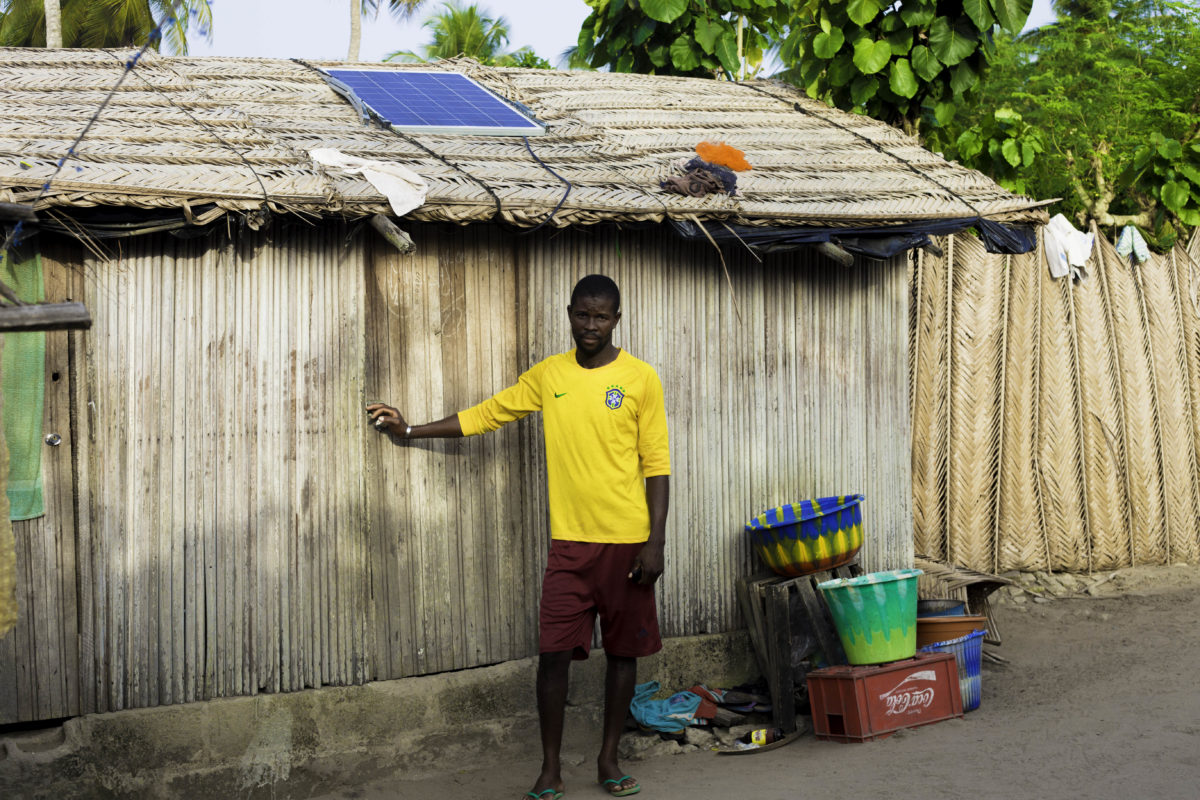Delegates at last month’s Africa Energy Forum (AEF) voiced concern solar mini and microgrid financing models do not stack up across the continent and there was at least one call for utility-scale PV to light up Africa.
However, the chief executive of a company which supplies pay-as-you-go (PAYG) home solar systems in Nigeria and the Ivory Coast has told pv magazine there is no silver bullet to bring PV capacity – and reliable electricity supply – to the continent.
“There’s no one single answer to everybody that needs electricity,” said Alistair Gordon, CEO of Lumos Global. “Some development banks and infrastructure funds are looking at large scale deployments but they all take a huge amount of time.” Proponents of utility scale development, off-grid solutions and PAYG providers will all press the claims of their preferred solution, he said, adding: “Everybody will fight their corner, for their own commercial viability. The opportunity [in sub-Saharan Africa] is vast.”
Lumos Global, headquartered in Amstelveen, in the Netherlands has so far rolled out household solar systems which generate a cumulative 30 MWh per day for around 100,000 customers in the two nations in which it operates.
How it works
A distribution and logistics arrangement with MTN Group – a South African company which operates mobile phone networks across Africa – enables installers to supply each customer with one or two 80 W solar panels, a 330 Wh battery and associated equipment. Customers who have paid a $40 charge for the installation then sign up for electricity access at a rate of $0.50/day which becomes cheaper depending on the length of time paid for. Payment is taken through the MTN network.
It is a simple solution to providing access to electricity for people beyond the reach of the grid, as is typically the case with Lumos customers in the Ivory Coast, and to providing reliable power supply, as is more often the case with PAYG clients in Nigeria.
Gordon says Lumos is able to secure financial backing for its operations from U.S. government agency partner the Overseas Private Investment Corporation because of the efforts it makes to protect its hardware from physical and digital hackers.
And the Lumos chief adds, the data compiled by the company is another central pillar of its offering to investors. “We take out telemetry… data to understand what the [household] system is doing,” said Gordon. “Performance of the panel, battery, unit, output etc. That can be used to improve customer performance.”
Data gathering
Big data, from a 100,000-plus customer base is a double-edged sword of course. Describing Lumos’ future plans beyond providing energy-as-a-service, it is obvious data is key. “There will be a network of distributed generation assets compiling data about the customers and their payment relationships,” added Gordon. “That network starts to get quite powerful because it allows us to lead into a number of new businesses such as micro finance, telco [telecommunications] fostering new business etc.”
What sovereign governments would make of the control and exploitation of data from their people by a privately owned company is another matter. That concern perhaps also explains why industry insiders such as U.S. development program Power Africa’s Andrew Herscowitz – at the AEF gathering in Lisbon last month – said utility scale PV should be the focus of African solar deployment.
But Gordon insisted Lumos’ business plan means people can get access to reliable electricity now, rather than having to wait for bigger centralized capacity deployment. Describing Lumos’ customers as households or micro businesses – “one-man bands, typically, such as small clinics, barbers etc” – the chief exec added: “Some people can’t wait for electricity.”
A benefit to Africa
“The reality is that grids are expanding slower than population growth,” he said. “We don’t see those grids catching up, either in terms of reliability or reach. We know there’s an opportunity for us and it’s a massive opportunity.”
Asked whether Lumos and other sub-Saharan energy providers are an example of another wave of European institutions partaking in the centuries-old tradition of exploiting African resources, Gordon was quick to state the benefits the company brings to the markets in which it operates.
“We’re a Nigerian company and employ huge numbers of people the length and breadth of Nigeria,” he said. “Well over a thousand contractors support us because we’re a nationwide company. The government is keen on encouraging the industry to work in-country. How that takes effect over a period of time is yet to be seen.”
This content is protected by copyright and may not be reused. If you want to cooperate with us and would like to reuse some of our content, please contact: editors@pv-magazine.com.




African regulators have some catching up to do on the data protection issues. Microsolar businesses should not have an unrestricted right to gather and exploit just any kind of data on their customers for marketing purposes. For example, in Europe mobile phone operators can only keep individual location data on cellphones (which they need to provide phone service) for a very short time before it is irretrievably anonymised by pooling. The exception is law enforcement, when there is a court warrant for surveillance of a suspect individual.